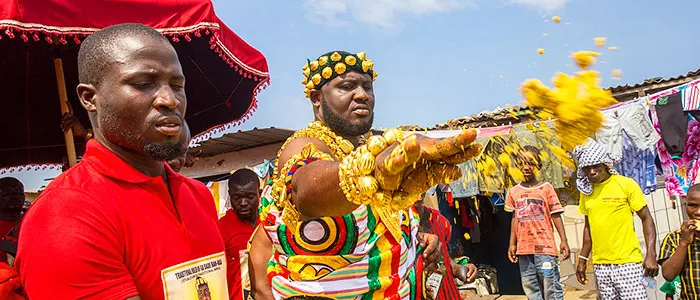8 upcoming Ghanaian festivals and their historical relevance
Ghana is home to a variety of rich cultural festivals, each unique to the various ethnic groups within the country.
Homowo festival
Celebrated by the Ga people of Accra, the Homowo Festival is typically held in the months of August or September.
It commemorates the harvest season and involves various rituals, including the sprinkling of ‘Kpokpoi’ (a special dish made from maize) to signify the end of the famine period.
Held by the people of Ada in the Greater Accra Region, the Asafotufiam Festival is celebrated in August. It is a military-themed festival that honors the warriors of the Ada traditional area through drumming, dancing, and mock battles.
Celebrated by the people of Akuapem in the Eastern Region, the Odwira Festival is usually held in September. It is a harvest festival that involves purification ceremonies, traditional music and dance, and the reenactment of mythical stories.



